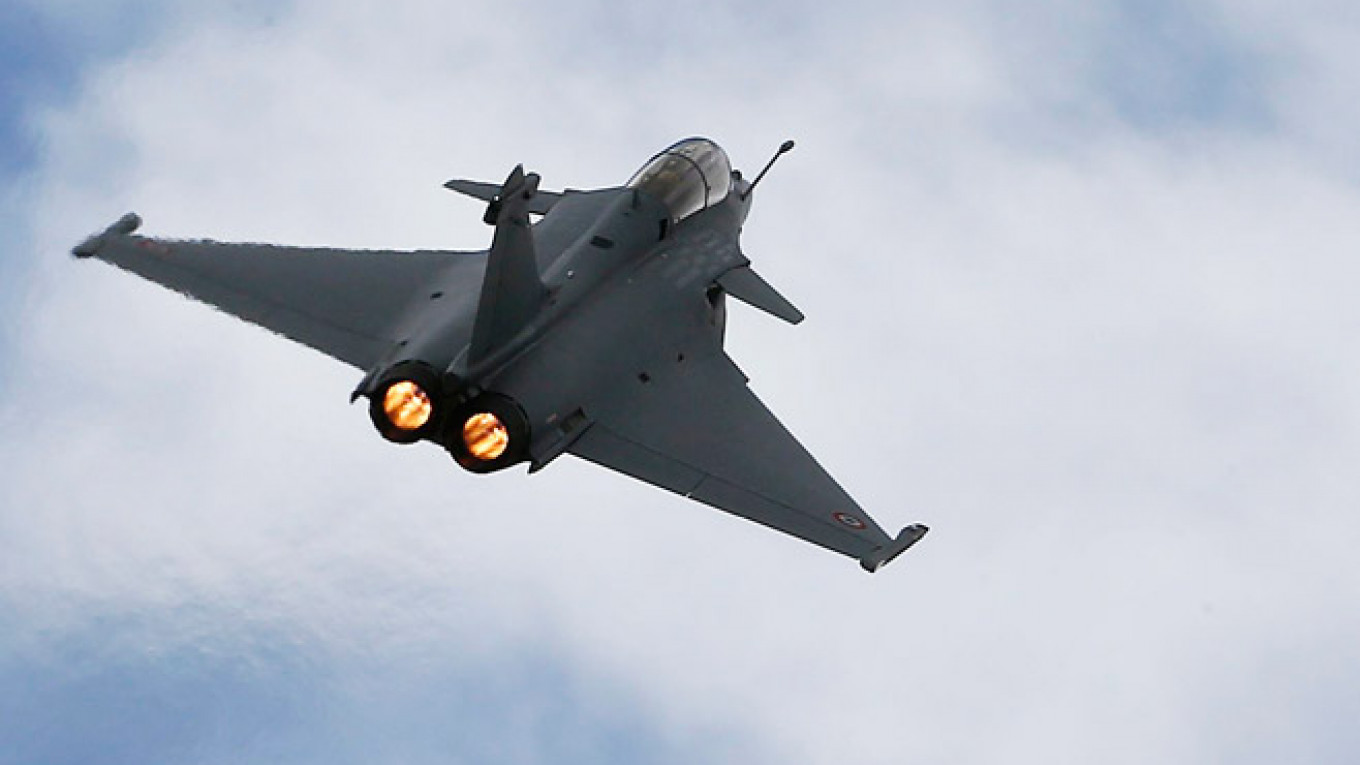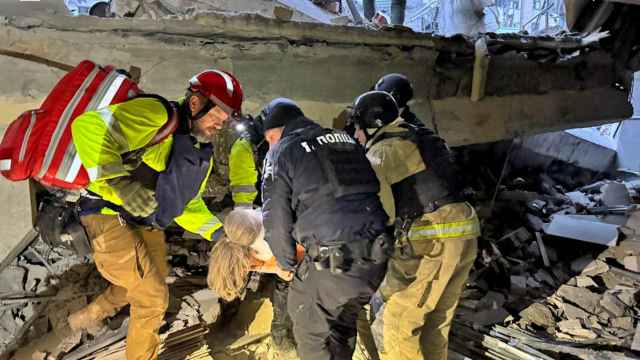Military jets that fly over Europe without identifying themselves pose a high risk to civilian aircraft, aviation safety officials said in a report published Tuesday, after a spate of near-collisions involving Russian warplanes.
The European Commission asked the European Aviation Safety Agency (EASA) to investigate after recent reports of the near-misses between commercial airliners and Russian military planes flying without electronic identification.
Russian planes have stepped up patrols over Europe and NATO has responded by sending more fighters to police Baltic skies amid an increase in tensions sparked by the Ukraine crisis.
The EASA's report, released by the commission, found that safety incidents involving civil and "non-cooperative" military aircraft over the high seas, particularly over the Baltic Sea, had significantly increased in 2014.
"The risk assessment … concludes that the risk to civil aviation is high, and this means that mitigating measures to reduce the risk to an acceptable level need to be taken," said the report, which did not mention Russia by name.
The EASA also cited a significant increase in "non-cooperative" military activity over the Baltic Sea in recent years.
"Non-cooperative" planes are aircraft that do not file a flight plan or talk to civil air traffic controllers and turn off their transponders, or electronic identifiers.
Britain said Tuesday that it had scrambled Typhoon fighter jets to intercept two Russian long-range bombers near British airspace.
The EASA said there had been 13 incidents in the Baltic region in 2014 in which two aircraft flew close enough to jeopardize their safety and three airspace infringements. That was up from five safety incidents and one airspace infringement in 2013.
Military planes that did not communicate or file flight plans were involved in most of the incidents last year, the report said, without naming the countries involved.
Tensions
Despite the focus on the Baltic, several other EU member states reported an increase in secretive military flights in the Atlantic, Black Sea and Aegean Sea, the report said.
EASA urged governments to harmonize and publish operational requirements for their air forces to ensure that the military paid proper attention to civilian planes.
It urged governments to harmonize civil and military coordination procedures for air traffic management at the EU level.
Swedish authorities said last December that a Russian military jet had nearly collided with a commercial passenger airplane near southern Sweden, but Moscow insisted that its jet had kept at a safe distance. NATO accused Russia at the time of posing a danger to civil aviation in the Baltic region.
East-West tensions rose after a Malaysian airliner was downed over eastern Ukraine last July. Western experts say it was most likely shot down by a ground-to-air missile fired from territory held by pro-Russian separatists.
A Message from The Moscow Times:
Dear readers,
We are facing unprecedented challenges. Russia's Prosecutor General's Office has designated The Moscow Times as an "undesirable" organization, criminalizing our work and putting our staff at risk of prosecution. This follows our earlier unjust labeling as a "foreign agent."
These actions are direct attempts to silence independent journalism in Russia. The authorities claim our work "discredits the decisions of the Russian leadership." We see things differently: we strive to provide accurate, unbiased reporting on Russia.
We, the journalists of The Moscow Times, refuse to be silenced. But to continue our work, we need your help.
Your support, no matter how small, makes a world of difference. If you can, please support us monthly starting from just $2. It's quick to set up, and every contribution makes a significant impact.
By supporting The Moscow Times, you're defending open, independent journalism in the face of repression. Thank you for standing with us.
Remind me later.






